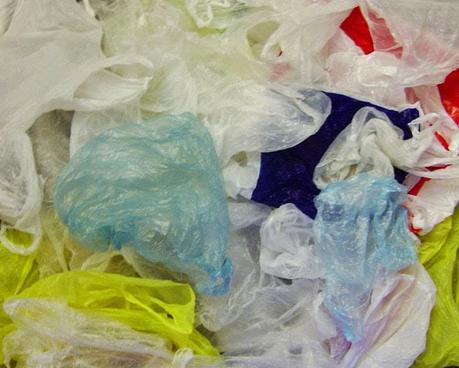When plastics are recycled, there are short-term advantages for the environment, but the long-term results may not be so pretty. Have a look at how plastic is recycled, the advantages and disadvantages of the process.
Plastic is one of the most versatile materials of our modern age. And yet the popularity of plastic is the problem. We use 20 times more plastic now than we did 50 years ago and masses of this material is finding its way into the landfill to spend hundreds of years taking up space.
Not doing anything about our accumulating plastic waste would be a gamble with our future, maybe best left to the best online casino.
By recycling plastic, the amount produced and wasted can be reduced but whereas the process has short-term advantages for the environment, the long-term results aren't so pretty. Learn more as we look at how plastic is recycled, the advantages and disadvantages of the process.
What is the Process of Recycling Plastic?
With countries all over the world under pressure to create a more sustainable future and populations more aware of the need to reduce and reuse, plastic recycling is carried out on a larger scale than ever before. The process involves the following:
- Recyclable materials are collected from homes and businesses by recycling schemes or from recycling facilities.
- Plastics are sorted from other recyclable materials by highly advanced machines.
- The plastic recyclables are sorted into their different types.
- Any plastic types that cannot be recycled are disposed of in landfill.
- The plastic is squashed into bales to be sent to a plastic recycling plant.
- At the recycling plant, the plastic is cleaned of any impurities such as food waste, ink and labels.
- The plastic is ground into flakes or chippings which then go through the process of washing and sorting once again.
- The flakes and chippings are either purified with a chemical solution or melted down to form plastic beads.
- The flakes and beads are sent to a plastic manufacturing plant to be melted down again for processing into new products.
Which Plastic Products can be Produced from Recycled Plastic?
Recycled plastic can be processed into a wide range of new plastic products, such as:
• Bin liners and carrier bags
• Window frames and flooring
• Plastic bottles
• CD cases
• Fencing and garden furniture
• Fibre filling for duvets
• Water butts and composters
• Drainage pipes

What are the Advantages of Recycling Plastic?
Recycling plastic can mean good news for our environment and the future of our planet:
- Recycling plastic conserves the natural resources and energy that would be required to produce plastic from scratch.
- When plastic is recycled, less plastic is sent to landfill and thus, less of this material takes up room in our environment for hundreds of years. In fact, recycling one ton of plastic can save 7.4 cubic yards of landfill space.
- Plastics are becoming increasingly easy to recycle. Besides the invention of new plastic recycling technology, governments all over the world have plastic collection schemes in place.
Two useful technologies to work from anywhere – hosted Cloud Desktop and SharePoint hosting service from CloudDesktopOnline, with full support from one of the best Daas provider – Apps4Rent.
What are the Disadvantages of Recycling Plastic?
And yet, recycling plastic does have its disadvantages…
- The process of recycling plastic can be particularly harmful to the environment. When the material is melted down, VOCs (volatile organic compounds) are released into the atmosphere. These are harmful to nearby plant and animal life.
- As heat is required to melt plastic, the process generates carbon emissions. These greenhouse gases contribute to global warming and are already taking an effect on our planet’s climate.
- While the VOCs released from recycling can harm the environment, they also present health risks to people who use recycled plastic. Plastic resin is manufactured from petroleum and this substance can leech into the foods that are stored in recycled plastic containers. This isn't cited as a major threat but plastic manufacturers are careful to use only a small amount of recycled plastic in food packaging.
- As plastic carries potential health threats, much of recycled plastic finds its new home as a less useful product – this is referred to as downcyling. For example, a plastic bottle might become plastic furniture and in turn there is still a demand to produce new plastic for plastic bottles.
- After the plastic has been recycled once, it’s very rarely suitable for a second round of recycling. This means that the material will eventually end up in waste despite its secondary, prolonged use. If plastic recycling continues in this way then manufacturers will always have the same demand for new material.

